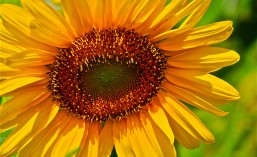If Heaven made him —
earth can find some use for him.
~Chinese Proverb
I watched light split the darkness on this chilly November morn, and as the sun rose higher on the horizon, I saw it initially tickle the tops of trees. Then leaf by leaf by leaf it began to lower. In the topmost branches, the squirrels, benefactors of the sun’s first fruits, sat poised in readiness for the day. Below the birds, yet reluctant to lift off, and I were on stand by waiting for the light’s kiss to brush its warmth against us as well. While I sat before the unfolding drama, it occurred to me that such as this, these primal vignettes of earth’s awakening, had played out in the same prevailing silence and expectancy since the dawn of time. It’s as if the light, and only the light, adds the vibrancy and buoyancy of sound and tempo to the day–as if there is a purpose in dim, quiet beginnings, as if first there is a need to obey holy rhythms, a foremost call to offer thanksgiving, a wisdom in opening songs of praise. Verily what I witnessed was the pregnant pause between what was, what is, and what’s yet to be, and standing in those gaps waiting to be greeted was, as always, the Giver of light, of breath, of life. At last when the light touched the ground, birds gave voice to the day’s opus and the dance of life began again! Thus I knew it was time not only to rise but also to celebrate miracles and keep them from becoming ordinary, time to prevent the mundane from stealing joy and a sense of awe and wonder. For it is ordained that we, all of us, have been anointed, have been given skill sets, and somehow, in some way have a purpose to fulfill. And if we are to accomplish that, we must cherish the light, take it with us, open life’s doors, and live in amazement.
And we know that in all things God works for the good of those who love Him, who have been called according to His purpose. ~Romans 8:28 ✝
**Image via Pinterest



